NYC's Mercantile Mayhem: Fungi Fest, Ukrainian-Owned Coffee, One Year of Mayhem and Vendors Who Need Permits
A newsletter about the survival of independent businesses in New York City with a focus on immigrant-owned, storefront retail and CPG enterprises.
I was recently in Porto, Portugal and Madrid, Spain, conducting some research on the state of independent businesses while logging in some vacation hours too, which is why this newsletter is a fews days late. I will briefly post about what I found, especially in Porto, in the next Mercantile Mayhem newsletter (spoiler alert: there is more mayhem happening in New York City).
THE FUNGI FEST’S “IN-SPORE-RATIONAL” INDEPENDENT BUSINESSES
Who doesn’t love a fungi? I attended the Fungi Festival at Farm.One in Brooklyn on Saturday, produced by Brooklyn Mushroom. Zeke Depas, founder of Brooklyn Mushroom and the festival programed a day packed with fungal-centric talks, presentations and discussions. Businesses spawned by the mushroom were in attendance: entrepreneurs who make mushroom planters, kombucha, teas, tinctures and extracts, mushroom farmers and chefs with a flair for the mushroom.
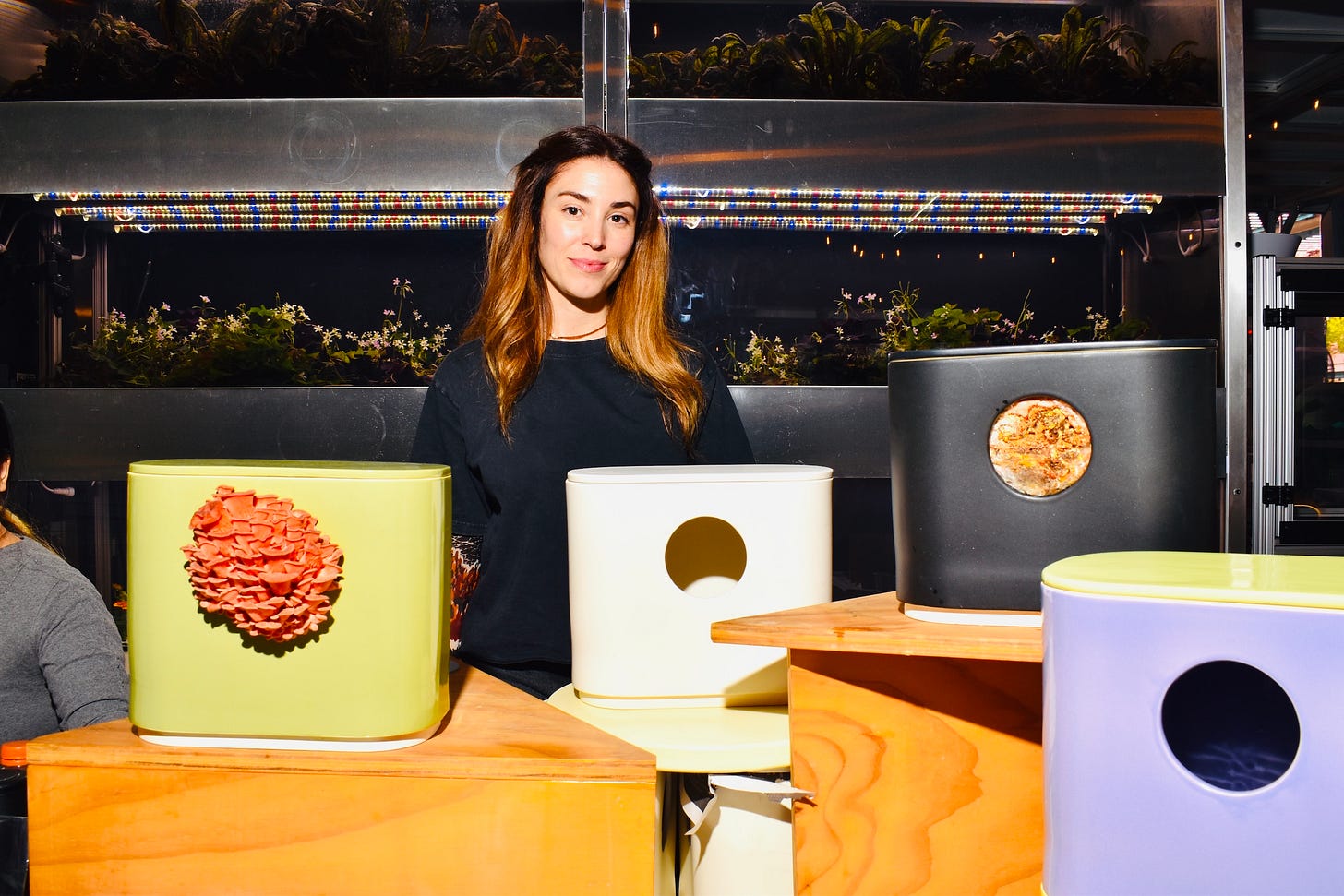
If the modular ceramic GUS mushroom planters above look familiar, it’s because they appeared at a Fable art event I covered in November for Mercantile Mayhem. Founder Tori Deetz designed the planters so fungal fans can use their own freshly grown mushrooms in cooking, or anything else for that matter. And the mushrooms grow fast! These planters are using North Spore mushroom fruiting blocks, a company based in Portland, Maine, the most compatible are golden, pink and blue oyster mushrooms. Deetz is in the process of scaling GUS’s production, GUS 2.0, so these handmade in New York City planters pictured could be collectors items.
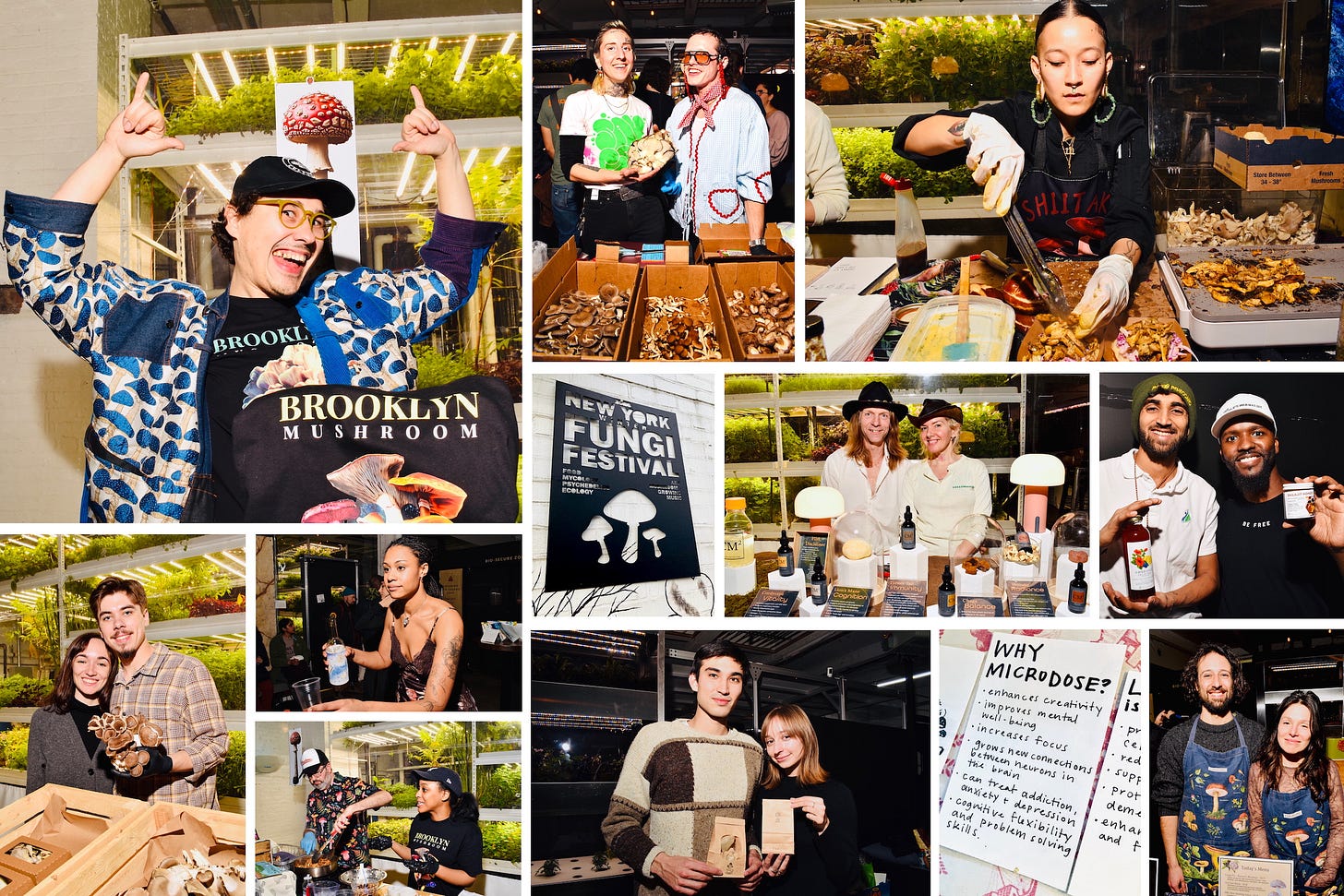
There were some unconventional, shall we say, aspects to the Fungi Fest, although fast becoming mainstream, such as microdosing teas for sale, discussions about psychedelics and medicinal mushrooms; the word “functional” was thrown around all over the place. Foods made with sautéd mushrooms filled the air with deliciousness. I met Aubry Carter pictured here who writes a Substack newsletter called Mushroom Monday (with a sub theme of Toadstool Tuesday) that I highly recommend. Depas estimated 800 people attended the Fungi Fest, which was Brooklyn Mushroom’s third festival.
UKRAINIAN-OWNED COFFEE ENTERPRISES IN NYC (AND MAINE)
One positive outcome of Trump and JD Vance’s absolute disastrous press conference with Zelenskyy, is more visible support of Ukraine on the streets of New York City, from protests in Times Square to packing Veselka in the East Village.
The US granted Ukrainians Temporary Protected Status after Russia began its full scale invasion of Ukraine, which was extended in January by Alejandro Mayorkas the previous US Secretary of Homeland Security, replaced by Kristi Noem, the one who cosplays as an ICE agent and previously killed her dog. Back to TPS status, as a result of this status, which I think should be granted to more immigrants fleeing war, multiple Ukrainian businesses have popped up across the US, one is the cozy yet sleek Simpl Coffee at 59 Nassau Street in Manhattan’s Financial District.
Simpl Coffee has been in operation for a little over a year, co-owned by Oleksandr Voievodin and Oleksandr Chernyshov, both go by Alex (sometimes Sasha as a nickname, but let’s stick to the Alexes). Each Alex worked in an aspect of coffee industry in Ukraine, but after Russia began its full scale invasion, each Alex left the country and eventually landed in New York City.
Simpl Coffee keeps it simple and delicious. Their coffee beens are from Ethiopia and Colombia among other regions, roasted at various levels to make phenomenal lattes and a handful of other specialty coffee drinks; their pastries come from Balthazar.
While I’m on the topic of Ukrainian coffee businesses, I visited Kavka Coffee in Camden, Maine this past August. Founder Maks Isakov created a coffee roasting business and sells direct to consumer. I know I go a little crazy in my enthusiasm for my subjects when I like their products, but Kavka Coffee makes truly outstanding coffee bean roasts.
Isavok also worked in the coffee industry in Ukraine before Russia began its full scale invasion and managed to land in Maine. A portion of coffee sales goes towards The Zhytomyr Humanitarian Hub.
I think this calls for a little Mercantile Mayhem matchmaking—Simpl Coffee serves coffee, Kavka roasts coffee, hello?!? Привіт?!? (Yes, there are several states in between Maine and New York, but maybe at the very least a “collab” in the future).
Each Ukrainian business owners has an incredible story of survival. It’s difficult enough to launch and run a business, imagine doing it in a second language, in a new city, with different regulations and traditions, zero or minimal professional and personal connections and/or funding.
HAPPY ONE YEAR ANNIVERSARY TO MERCANTILE MAYHEM AND WHY I CONTINUE TO COVER INDEPENDENT BUSINESSES
My first Mercantile Mayhem newsletter was sent out on February 20, 2024. It started as a side project, but it’s been so much fun to cover New York City’s independent businesses, I spend more time on it than I originally anticipated. Hopefully my enthusiasm shines through. Readership has since grown, I have paying subscribers (thank you!) and two fabulous sponsors, Accompany Capital and Small Business Majority (thank you squared!).
When I started a year ago I felt a newsletter specifically about New York City’s independent businesses was needed, they are often overlooked in the media. The subject is of interest to me because not only are these human stories of the David and Goliath variety in New York City, but independent businesses also hold fascinating anthropological and economic information, reflective of our culture and society. There is plenty of drama, psychology and social science aspects to each independent business story.
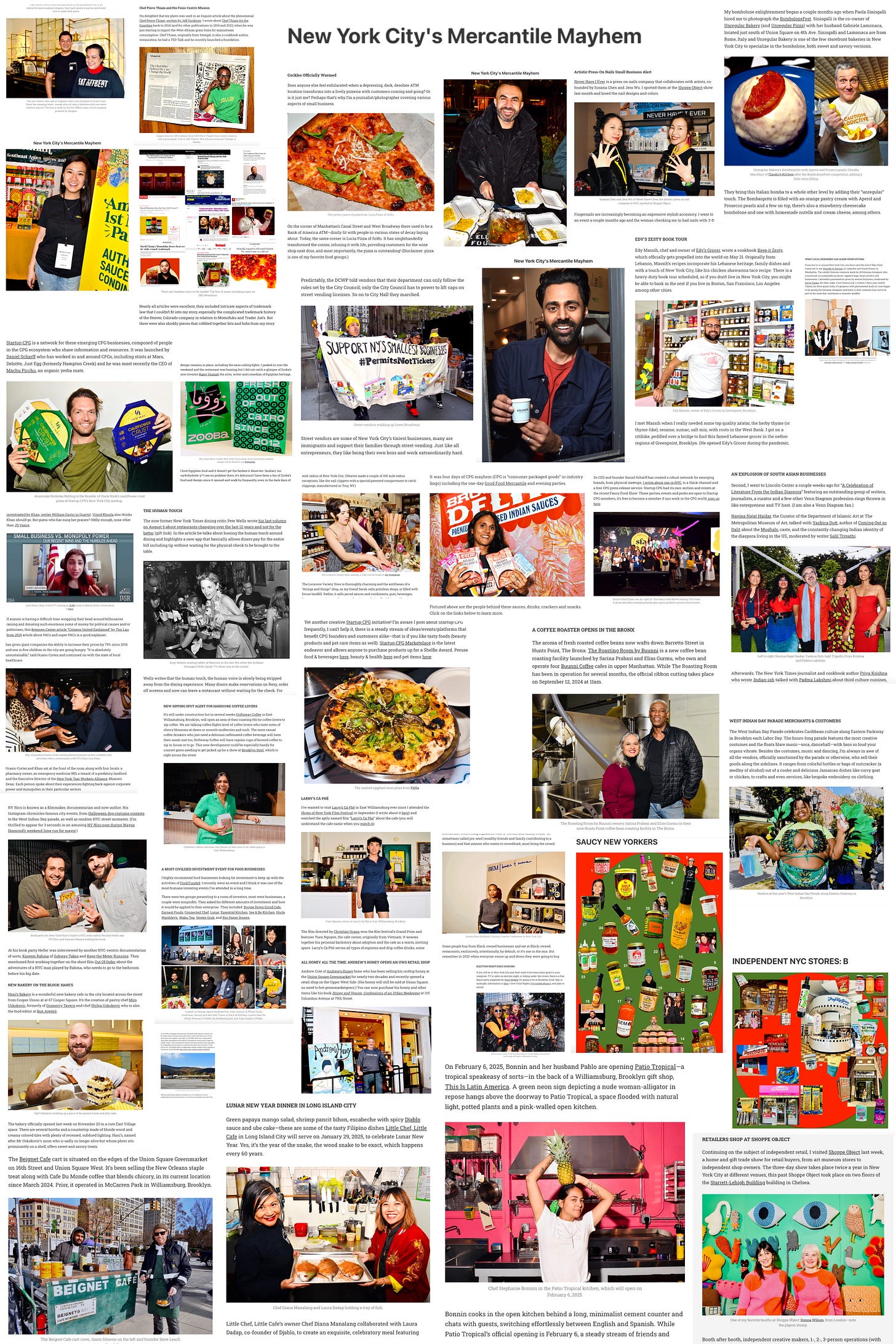
One year later, the subject of independent businesses is even more timely. There is growing awareness, mistrust and anger among US consumers towards oligarchs, monopolies and multi-national corporations because of outsized power and the impact on prices for everyday items and services. Income inequality is at a tipping point, just look at the outpouring of support for Luigi Mangione who murdered a CEO and a term like “techno-fascism” is being used with greater frequency.
While I do consider early stage tech startups a form of independent businesses, I am more reluctant to cover them. Years ago tech startups seemed like a new, innovative way to solve problems, today the sector seems like a slightly soiled pyramid scheme, at least in the US, overrun with hypocrisy, greed and corruption (sorry to be such a negatron). Case in point: Trump named five cryptocurrencies to be considered for a US crypto reserve yesterday, one being Bitcoin. David Sacks, a Silicon Valley VC who is Trump’s “AI and Crypto Czar” isn’t required to reveal his crypto investments, like being a seed investor in Bitwise’s Bitcoin ETF, an investment fund, or divest his crypto investments. After Trump’s announcement via social media, Bitcoin’s price went up. Who or what body is regulating people like David Sacks?
When there are 36.8 million people living in poverty in the US and a startup gets multiple millions in VC investment to launch a company that delivers astrologically-appropriate cashmere socks to the 1% via daily drone drops (ok, that’s a hypothetical business—but free business idea!) it gets ridiculous. Of course there are scores of tech startups, especially in Finland (shout out!) launching useful startups in biotech and agtech, there are social impact startups worldwide, among other positive aspects. But tech startups (and some CPG companies) often have a different end goal to be acquired because investors want to make a profit on their investment. I’m more interested in covering independent business owners in it for the long haul.
I hope my coverage of NYC’s of independent businesses, from scrappy micro-businesses to the more polished, inspires local consumers to purchase from independent businesses when possible. It’s fun, interesting and often educational.
VENDORS STILL WAITING FOR PERMITS
Street vendors waiting for permits has been an ongoing issue for decades in New York City due to a cap on permits. Last week, the Street Vendor Project organized a protest in City Hall Park in support of passing Intro 431 allowing more permits to be issued. City Council member Pierina Sanchez, who’s father and grandfather were street vendors in the Dominican Republic and US, put forward Intro 431, there have not been enough permits for vendors who sell all types of items, from mangos to I ❤️ NY t-shirts.
The legalities of New York City’s street vending can be a complicated to follow. “Permit” and “license” are often used interchangeably, but are not the same, there are different requirements when selling food and non-edible merchandise. In addition, Local Law 18 allowing 4,450 more vendor permits to be issued (at least on paper) that passed in 2021, reformed the permit and license process, which slightly altered the language. Regardless of the technical verbiage, more vending permits are needed.
There are 23,000 vendors in New York City, according to a report by Immigrant Research Initiative (IRI), 96% are immigrants. Twenty five percent of the food vendors have permits, 75% do not and 63% of the merchandise vendors have licenses, 37% do not.
It’s odd that the City Council is so reluctant to overhaul the permit system when some food vendors who had scrappy operations working out of carts, nooks and trucks like The Halal Guys, Xi’an Famous Foods and Van Leeuwen Ice Cream have blossomed into mini empires. These micro-business entrepreneurs like being their own bosses, as all entrepreneurs do—it’s as if the City Council would rather see these workers punch the clock at Target.
Because of insufficient permits, many street vendors are forced to sell underground, so to speak. The NYPD has the legal right to confiscate vendors’ products and equipment, and issue costly tickets. It’s not only heartbreaking, but also a waste of food, taxpayers’ money and the NYPD’s time considering an array of far more serious problems in New York City.
Along with City Council member Sanchez, City Council member Shekar Krishnan and Public Advocate Jumaane D. Williams spoke at the protest (I missed these two speakers, unfortunately) as well as Jackson Chabot of Open Plans. Chabot brought up a good question—Why hasn’t the city’s Small Business Services gotten involved with the vendor permit debacle? These are micro businesses.
Vendors are part of New York City’s culture and history, a draw for tourism, said vendor Calvin Baker at the protest. He added that tourists don’t learn about Harlem’s history and culture while shopping at Burlington Coat Factory or Marshall’s, but they do experience aspects of Harlem when talking with street vendors, who he called “the fabric of the community.”
There is an argument to be made that it’s not fair for a fruit vendor to set up in front of a produce shop, for example, which pays rent, or for vendors to set up on a narrow crowded sidewalk, or leave garbage behind. These are all valid points and would be easier to regulate if each vendor had a permit.
According to the IRI report, 39% of the immigrant food vendors surveyed said they can work legally in the US and 67% of the merchandise vendors said they can work legally. There are undocumented vendors, which is a different set of issues altogether, contingent on their status. But, I just have to ask, is an undocumented vendor selling mangos, pretzels or t-shirts really causing harm to New York City?
I wish all the people who want New York City to resemble one big suburb with pristine streets lined with soulless commerce, would move to the suburbs, so that New York City can be left to be New York City.
MADE IN NYC WEEK IS ON THE HORIZON
Made in NYC Week 2025 takes place across the city May 1 - May 9, 2025. It celebrates locally made and manufactured goods through pop-ups, in-store events, marketplaces and other activities. Events, typically posted on their Instagram, will spotlight Made in NYC members’ products, from beverages and condiments, to ceramics and beauty unguents. (If you want to be a Made in NYC member, it’s free to join, but there are requirements.)
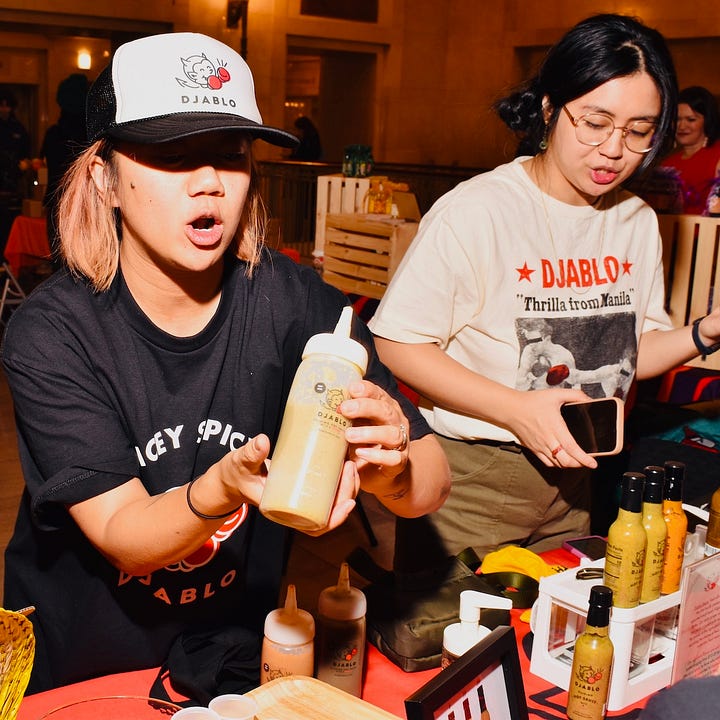
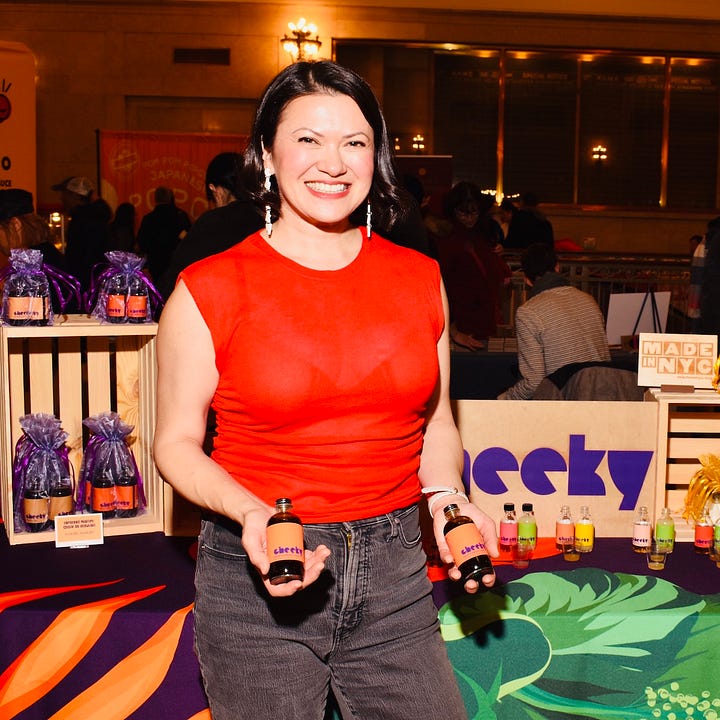
Made in NYC a nonprofit based in Brooklyn that advocates for local manufacturing ecosystems, an initiative of the Pratt Center for Community Development. Made in NYC had been looking for local retailers to host events during Made in NYC Week and showcase products, but the deadline was officially March 2, yesterday. Perhaps they will show mercy towards late interested retailers, emails can be sent to taylor@madeinnyc.org.
HOW DAUNTING IS IT TO OWN AN INDEPENDENT BUSINESS IN NYC?
Buddies is a tiny coffee shop in Williamsburg, Brooklyn. Rachel Nieves, one of the two co-founders, made a TikTok video about the business’s current state of affairs, which involves a rent increase and a new coffee shop opening close by. Please take a moment to watch the video (you don’t have to be on TikTok to view the video, I’m not) to see what independent businesses face in New York City. Since Nieves posted her vulnerable video, there has been an out pouring of support at Buddies with lines down the street and media attention galore, Catalina Gonella at Gothamist wrote about Buddies here.
ECONOMIC BLACKOUT FRIDAY
I’ll be curious if Friday’s economic blackout had any impact, if the data ever becomes available. Some people thought the boycott was idiotic because it lacked a concrete goal. But I thought it was a good exercise, perhaps a dress rehearsal for a larger boycott of corporate companies and chain stores owned by shady figures further down the road.
Thank you to Mercantile Mayhem’s sponsor Accompany Capital. Based in New York City, Accompany Capital, a CDFI, helps immigrants and refugees with loans and financial services. Please read about it here.
Thank you to Small Business Majority, Mercantile Mayhem’s sponsor. SBM supports and empowers small businesses across the US with a focus on public policy. Please read about SBM here.
WHY NOT SPONSOR NYC’s MERCANTILE MAYHEM?
Yes, I am still looking for one additional sponsor, three in total—individuals, businesses, organizations or foundations—who believe independent businesses in New York City need to survive. Do you want a city full of just Chipotles, Starbucks and bank ATMs? Do you value the character that independent businesses bring to New York City?

If you would like to know sponsorship rates and newsletter stats (open rates and such) please email me: ninarobertsnyc@gmail.com and I’ll send you the details. Please forward this newsletter to others.
OPPORTUNITIES
WomensNet offers a number of grants to women-owned businesses on a rolling basis, peruse grant information here.
Small businesses in New York City could win a micro grant up to $5,000 through CitizensNYC. Plan ahead, a new grant cycle opens on May 5, 2025, deadline is July 25, 2025.




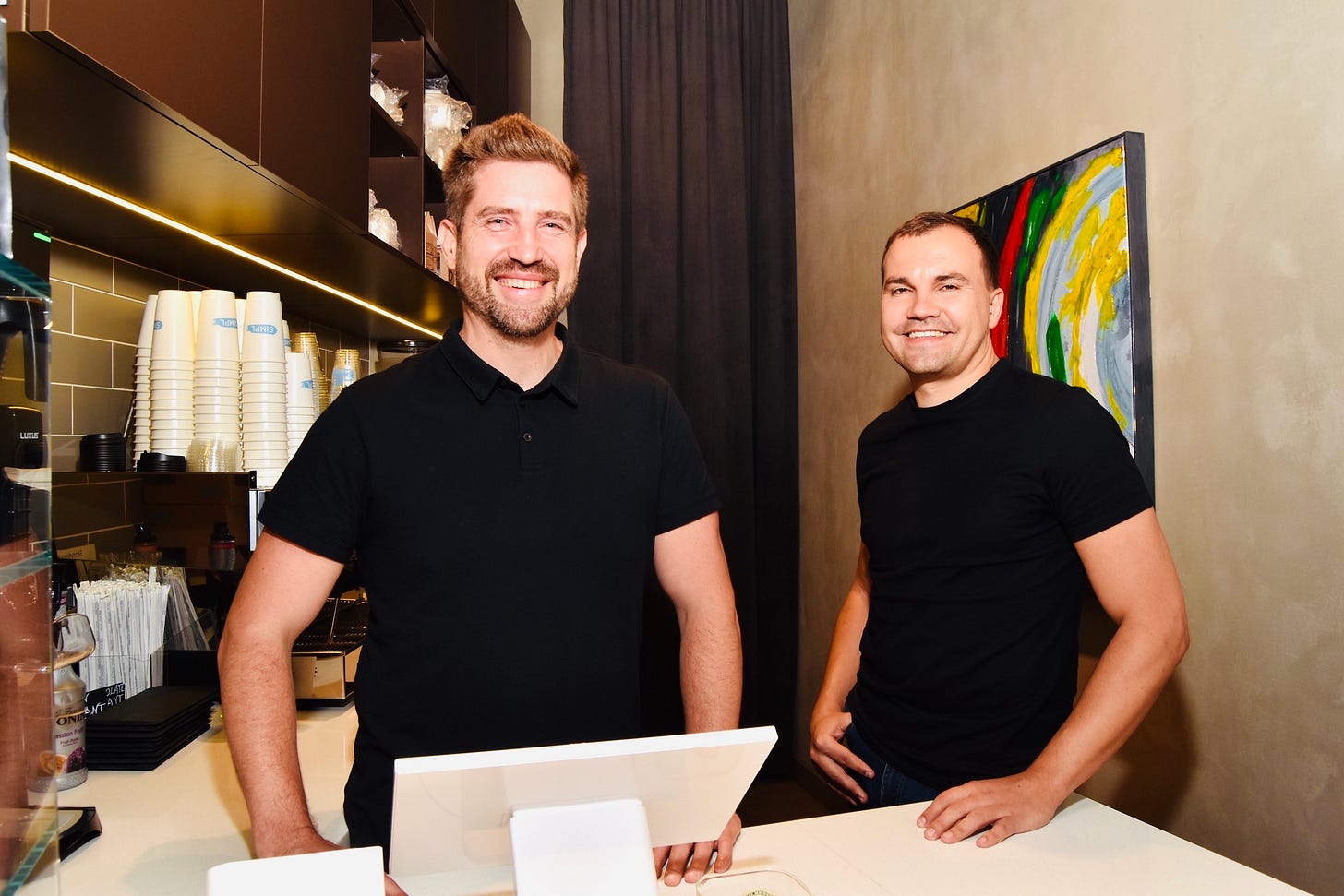
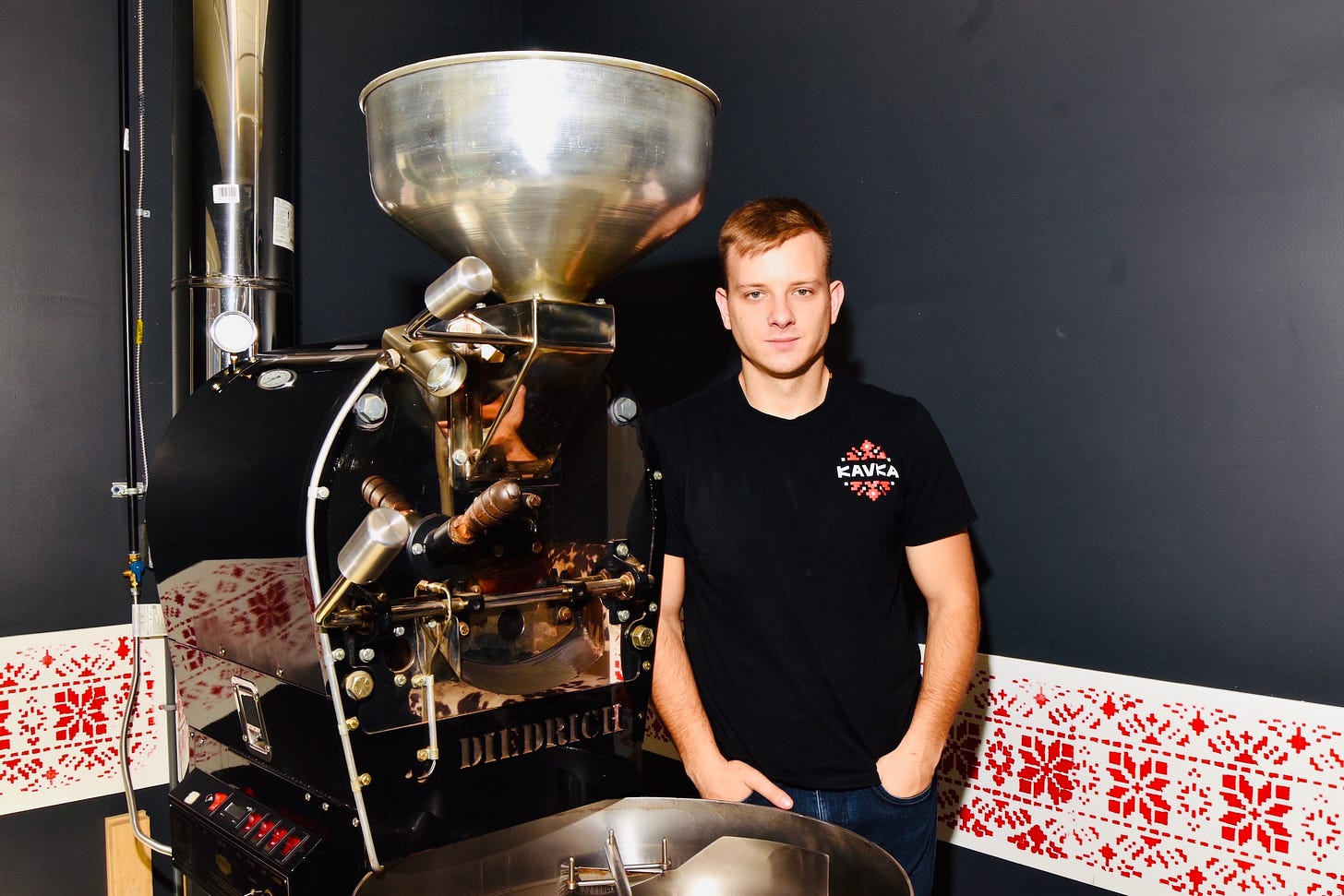
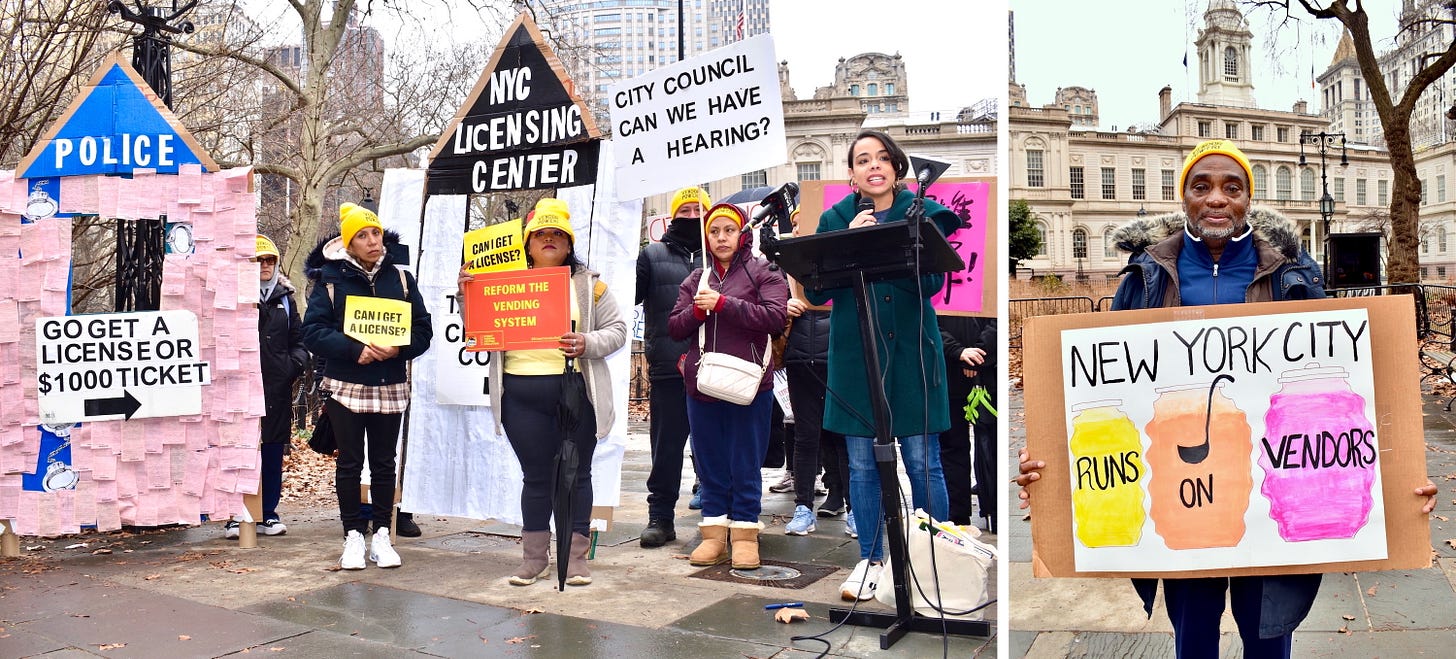
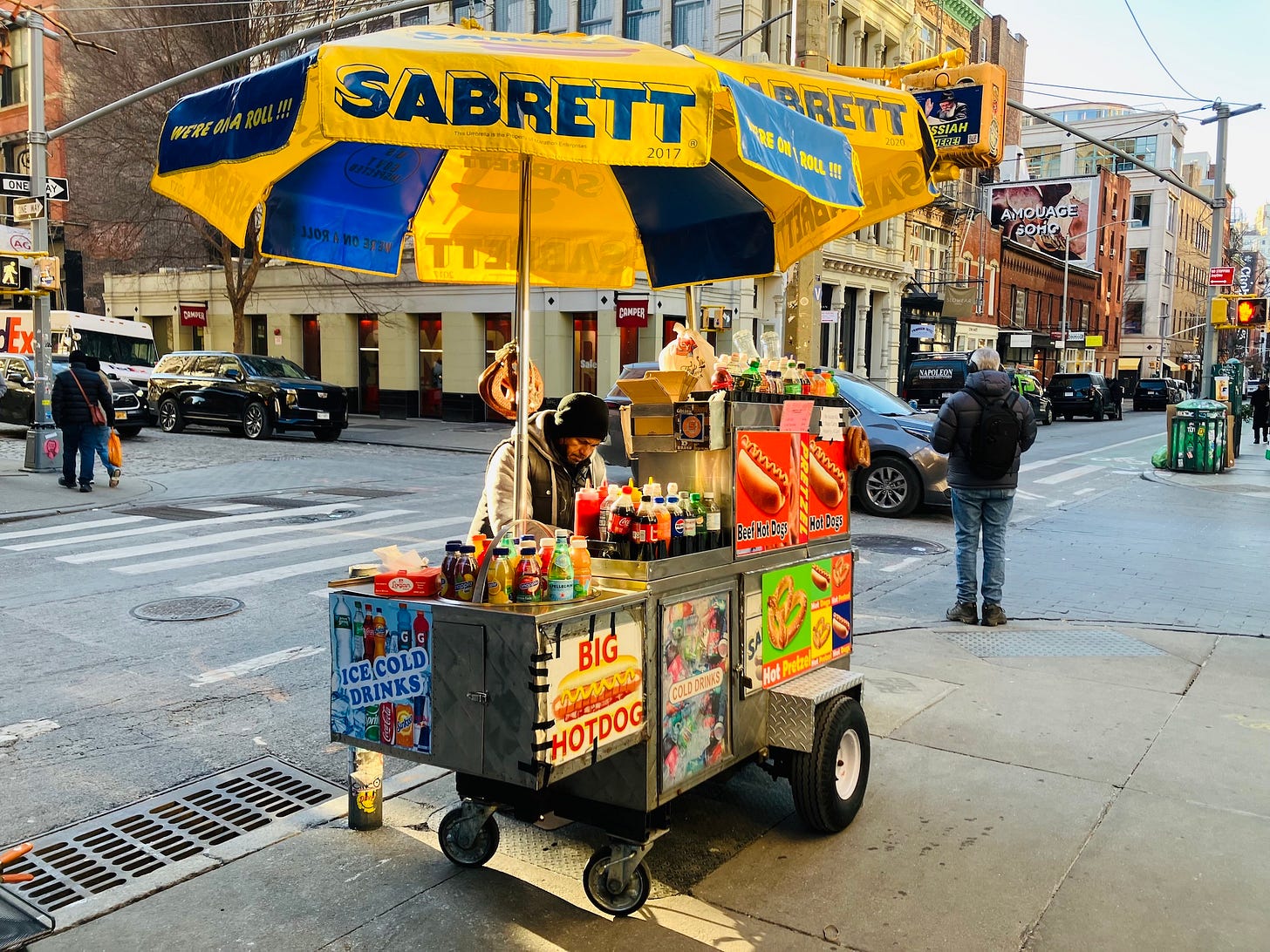


Great post! Happy anni! Just shared! xx
Great post, Nina! And Happy Substack-anniversary!